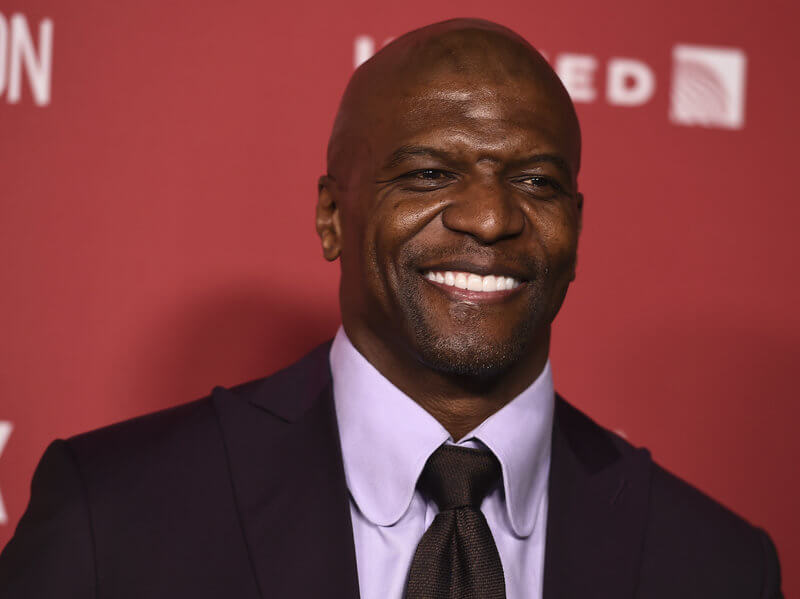Mic May 2, 2017 By Melanie Ehrenkranz Next time you find yourself watching a panel of experts discussing the latest in technology, finance, engineering, math or science, ask yourself: Am I looking at a sea of men? Most likely, the answer is yes. Spotting a woman on a tech panel often feels like a game of Where’s Waldo?. Majority-male panels …
Is This How Discrimination Ends?
The Atlantic May 7,2017 By Jessica Nordell On a cloudy day in February, Will Cox pointed to a pair of news photos that prompted a room of University of Wisconsin, Madison, graduate students to shift in their seats. In one image, a young African American man clutches a carton of soda under his arm. Dark water swirls around his torso; …
Untapped Reserves: Promoting Gender Balance in Oil and Gas
Representing roughly a fifth of employees in the oil and gas
industry, women account for a significantly smaller share of the
workforce than they do in almost any other sector. These women also
work disproportionately in office jobs; they have a very limited
presence both in technical roles, which are often considered prerequisites
for career advancement, and in upper management. The upshot:
oil and gas companies are failing to fully leverage a potentially sizable
and critical pool of talent.
The loss to the industry is threefold. First, oil and gas companies have
a smaller number of highly qualified candidates to choose from when
filling positions, especially in the middle and higher ranks, because
many talented women either never join the industry or drop out prematurely.
Second, these companies miss out on the higher quality of
teamwork, diversity of perspectives, and creativity in the solving of
technical and business problems that characterize those with larger
percentages of female employees. Third, the industry’s relative lack of
gender diversity, particularly in the senior ranks, hurts its reputation
among women as a career choice. This can create a vicious circle, with
the industry finding it progressively more difficult to recruit women
across the board.
The combined effects could ultimately weigh heavily on oil and gas
companies’ ability to increase capital productivity, which will be vital
as they wrestle with the challenges posed by the potential large-scale
retirement of many experienced employees, an ongoing uncertain oil
price environment, and advances in robotics and artificial intelligence
that could reshape the industry in a host of ways.
But attracting and retaining greater numbers of women, particularly
those with optimal backgrounds and skill sets, will pose challenges for
the industry. These include the limited number of girls and women
pursuing technical educations, structural barriers within the oil and
gas industry that make it difficult for women to advance and to balThe
Boston Consulting Group • World Petroleum Council | 5
ance work and family, and an established male-centric culture that remains
prevalent throughout much of the industry. We strongly believe,
however, that the industry can and must surmount these
challenges and close the gender gap if it hopes to position itself optimally
for tomorrow.
The following are the key findings of our report:
The percentage of women in the industry’s workforce drops over time
and falls particularly sharply—from 25% to 17%—between the
middle-management and senior-leadership career stages. This trend
won’t change unless CEOs make gender diversity a higher strategic
priority. Although 56% of men b elieve that their CEO considers
gender diversity important or very important, only 36% of women do.
CEO commitment matters because many employees, especially men,
take their lead from the CEO. Of men who think their CEO considers
gender diversity very important, only 7% consider it unimportant or
very unimportant themselves, while 86% consider it important or very
important. Conversely, of men who think their CEO considers gender
diversity very unimportant, 58% likewise consider it unimportant or
very unimportant, while only 34% consider it important or very
important.
Although men and women start out on an equal footing, women
rarely reach the top of the organization. This isn’t owing to a lack of
ambition: our research shows that women are just as ambitious as
men. So what’s the reason? Men, especially those in senior positions,
attribute the phenomenon largely to a shortage of qualified female
candidates. This assessment is probably accurate: among women who
have spent many years in the industry and might otherwise be
considered suitable candidates for promotion to senior management,
many have failed to accumulate the critical experiences that their
male colleagues have. Thus, even among women who are still at the
company after 15 to 20 years, the odds of landing a senior executive
job are small: women hold less than 20% of these p ositions.
There are wide gaps in perception between men and women regarding
the gender-related challenges that women face. For example, men
believe that women are generally less flexible than men and therefore
less suited to certain roles, including many expatriate positions and
jobs in the field. But our research shows that women are in fact just as
flexible as men, and sometimes even more so. The differences in
opinion between men and women about the challenges women face
are particularly evident with regard to women’s underrepresentation
in the senior ranks. Fifty-seven percent of women said that female
employees receive less support for advancement into senior positions
than male employees; only 24% of men agreed. Fifty-six percent of
women said that women are overlooked for senior positions; only 23%
of men agreed.
Unless companies develop a critical mass of women across all roles,
meaningful progress toward gender balance in the industry will not
occur. Many oil and gas companies are making a genuine effort to
improve gender diversity through recruiting practices, work-life6
| Untapped Reserves
balance policies, and other means. But these measures have not
produced the desired results, in large part because they are too
hands-off, failing to focus on meaningful quantitative targets. While
an average 22% of jobs in the industry are filled by women, a look at
specific job categories tells a different story. College-educated women
hold fully 50% of entry-level office and business-support positions, but
they hold only 15% of entry-level technical and field positions.
There are many actions the industry can take to increase the number
of female employees and accelerate its progress toward gender
balance. The industry must look holistically at the various functions—
especially technical ones, where women’s representation is
particularly low—and establish targets that will boost women’s
presence to the point of critical mass. The industry should also take
specific actions centered on three critical career stages:
•• At the entry level, the industry can expand the talent pool it
draws from by taking steps to increase women’s participation in
STEM programs. It can enhance its attractiveness to women as a
career choice by promoting the wide range of jobs available and
making career paths more flexible, working with governments to
remove structural barriers that make it difficult for women to work
in the industry, and increasing the number and visibility of senior
female role models.
•• At the midcareer level, the industry can work to ensure that
women have the same career opportunities as men, that each
woman has a sponsor who can offer career guidance, and that
work-life-balance policies are available and applied equally to
male and female employees.
•• At the senior-leadership level, the industry can provide stretch
goals for women and the necessary support to help them succeed,
broaden the range of career paths from which senior leaders are
picked, and ensure that standards for promotion are applied
equally to men and women.
Greater gender balance is a worthwhile and attainable goal for the
industry, and one that it has the means t o achieve. Provided that
leadership commitment, especially from CEOs, remains sufficiently
strong, the industry could boost women’s representation steadily and
materially over time—and reap a host of benefits, including improved
organizational performance, creativity, decision making, and morale.
Local girls get exposed to STEM possibilities during Tech Trek
Pomerado News August 12, 2017 By Elizabeth Marie Himchak Five incoming eighth-grade girls recently gained new insights into the possibilities available through STEM fields during a special camp geared for them. STEM stands for science, technology, engineering and math, the focus of a weeklong camp at UC San Diego sponsored by the American Association of University Women. The San Diego …
Adriana Gascoigne: founder and CEO of Girls in Tech
Mercury News August 21, 2017 By Ethan Baron SAN FRANCISCO — The way Girls in Tech founder Adriana Gascoigne sees it, revelations about sexual harassment in Silicon Valley technology firms are a double-edged sword: they shine a light on a serious problem, but depict an environment that can deter women from careers in tech. Gascoigne, who says she has suffered …
First Female Marine Completes Grueling Infantry Officer Course
NPR September 27, 2017 By Merrit Kennedy For the first time, a female Marine has completed the grueling Infantry Officer Course. The 13-week course is considered one of the toughest in the U.S. military, and one-third of the class dropped out before graduation. The Marines said in a press release that the lieutenant has “asked to keep her identity private.” …
Here’s A Superhuman Volleyball Play From Three Different Angles
Deadspin October 22,2017 By Lauren Theisen Coming to you from Decatur High School in Texas is what has to be one of the best amateur sports highlights of the year, courtesy of senior Autumn Finney. Finney covered an incredible distance to get to a lost-cause ball in the back, laid out with a dive, and somehow mustered enough power to …
Terry Crews On His Sexual Assault Lawsuit: This Is About Accountability
NPR December 10, 2017 By Michel Martin Actor and former NFL player Terry Crews filed a lawsuit last week stemming from an encounter at a party in 2016 when he says a high-powered Hollywood agent groped him. Crews tweeted about the assault in October, prompted by the women who came forward accusing Harvey Weinstein of sexual assault and harassment and …
WHY WE NEED TO REIMAGINE MASCULINITY
Newsweek September 20, 2010 By Andrew Romano What’s the matter with men? For years, the media have delivered the direst of prognoses. Men are “in decline.” Guys are getting “stiffed.” The “war on boys” has begun. And so on. This summer, The Atlantic’s Hanna Rosin went so far as to declare that “The End of Men” is upon us. There’s …










